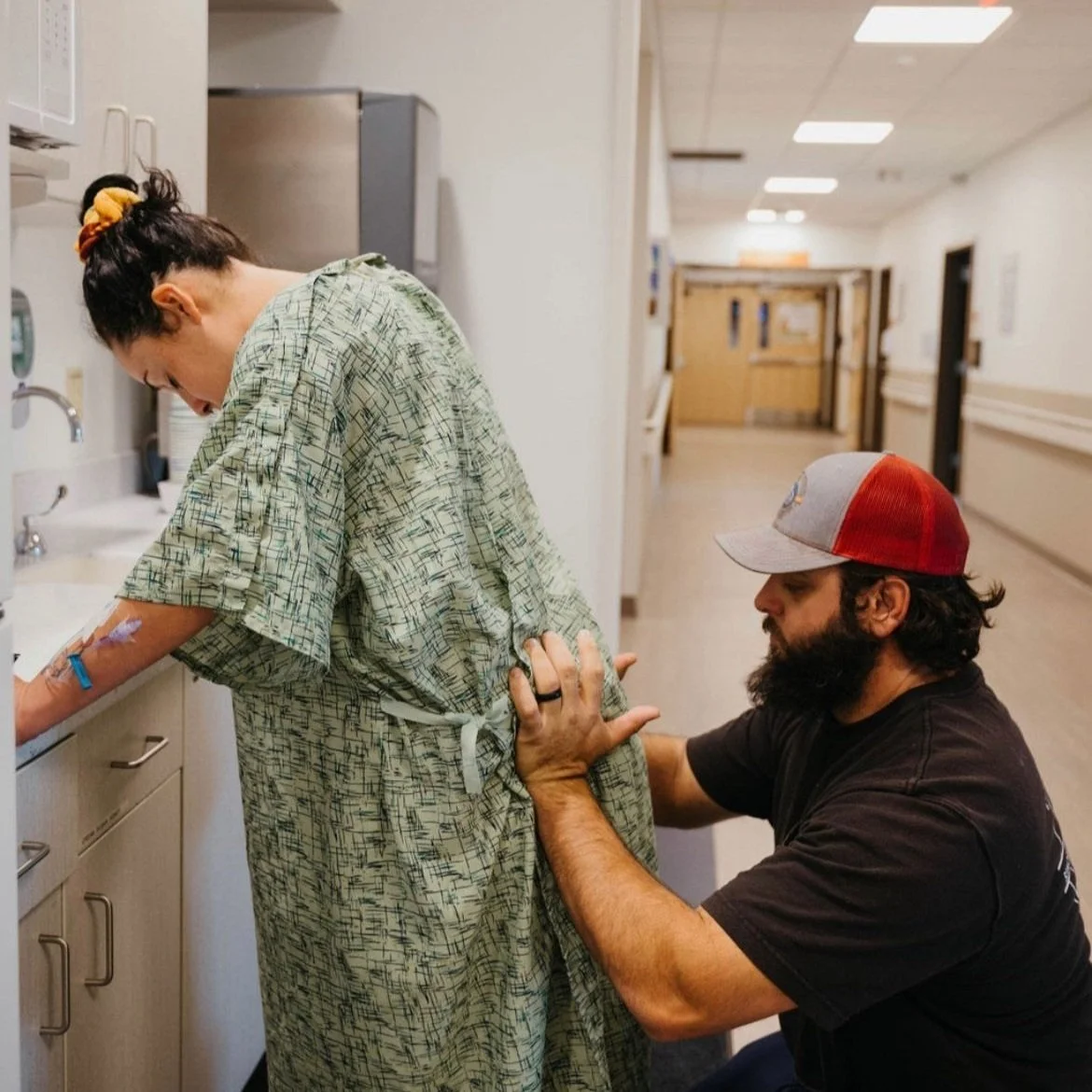Preparing For Your Unmedicated Hosptial Birth
Imagine this, you walk into your routine prenatal visit with your provider feeling a mix of anticipation and uncertainty. The visits are always brief, and you often feel rushed through them, barely having time to process what is being said. As you settle into your chair, you glance at your partner, hoping for some reassurance. The provider finally comes in, you exchange pleasantries before diving into the usual questions about weight gain, any new symptoms, and how you are feeling emotionally. You nod along, trying to recall the questions you had carefully crafted in your mind before this visit started. But as you opened your mouth to ask, you hesitated. The moment passed, and before you knew it, the appointment was over.
Walking out of the clinic, you can't shake the feeling of unease. Are you truly understanding everything that is happening in this pregnancy? You brush it off as just part of the process, thinking, "This is just what you do, I guess."
Now, contrast this with a completely different experience. You see a provider that takes the time to get to know you, and your concerns. In these appointments, there is a sense of collaboration rather than being put on the spot. You feel empowered to ask questions, knowing that your provider values your input and would take the time to address your concerns.
This shift in approach makes a world of difference. You begin to feel more informed about your pregnancy and the decisions you are making for yourself and your baby. You understand how each choice could impact your birth experience and feel confident in advocating for your preferences.
Did you know you have access to this level of care and support?
Many pregnant individuals might struggle to envision what a more empowered prenatal experience could look like when they’re uncertain on the right questions to ask in their routine visits. So how can you move from a place of timidity to confidence in the full experience of your pregnancy and birth? Here is a tip on beginning this journey…
Advocate for yourself by knowing your options and asking the right questions.
Advocating for yourself in your birth journey is crucial, and asking the right questions is a powerful way to ensure you're making informed decisions and receiving care that aligns with your preferences and values. Your birth experience is deeply personal, and having a voice in how it unfolds is essential. One way to assert your agency is by arming yourself with knowledge and asking the right questions during your prenatal visits. These inquiries not only help you understand your options but also allow you to gauge your provider's approach to childbirth and their compatibility with your wishes.
Getting to Know Your Provider
Walking into each prenatal appointment with a list of questions can be transformative. It not only sets the tone for open communication but also offers insight into your provider's philosophy and values regarding birth. Here are some questions to consider:
Monitoring and Interventions: How often do you monitor me and my baby during labor? How frequently do you perform vaginal exams?
Philosophy on Birth: What is your philosophy on pregnancy and birth? Do you support mothers who desire a physiological birth?
Communication Expectations: What are your expectations regarding communication when labor begins? How do you prefer to stay in touch and make decisions together?
Past Experiences: Can you share an example of how you've supported a mother seeking a specific birth experience in the past?
Birthing Options: What positions can I give birth in? Do you encourage freedom of movement during labor?
Doula Support: Do you recommend and support the presence of doulas at births (here is the evidence on benefits of a doula)? How do you collaborate with birth support professionals?
Handling Complications: How do you handle complications or high-risk situations that may arise during labor?
Preparation for Future Visits: What can I expect and prepare for in our next prenatal visit?
Asking these questions not only provides clarity about what your birth experience might entail but also fosters a deeper connection with your provider. By understanding their approach and past experiences, you can better envision your journey and ensure that your preferences are respected. Remember, advocating for yourself doesn't stop with asking questions; it's an ongoing process of actively participating in decisions about your care. A big piece of this begins with a comprehensive childbirth education class (here is ours that you can check out). Trust your instincts, seek support from trusted sources, and remember that your voice matters.
Your birth journey is a profoundly transformative experience, and advocating for yourself is key to ensuring it aligns with your values and desires. By coming prepared with questions, you empower yourself to make informed decisions and forge a partnership with your provider built on trust and understanding. Your voice matters—make it heard!
Looking to dive deeper into preparing for your unmedicated birth? Consider enrolling in our comprehensive online curriculum, "Preparing for Your Unmedicated Birth." This course offers invaluable insights, tools, and strategies to help you navigate your childbirth journey with confidence and empowerment. With expert guidance and evidence-based resources, you'll feel fully equipped to embrace the transformative experience of natural childbirth. Pre-enroll today to get early access to our outline and a special message from the Ezer Birth team! This course will go live on June 21st. By the end of this course, you’ll walk away equipped with the knowledge and confidence to engage fully in your prenatal care and make informed decisions for yourself and your baby. With this newfound empowerment, individuals like you can transform your prenatal experience from one of uncertainty to one of confidence, setting the stage for a positive birth experience and a healthy start to parenthood.


